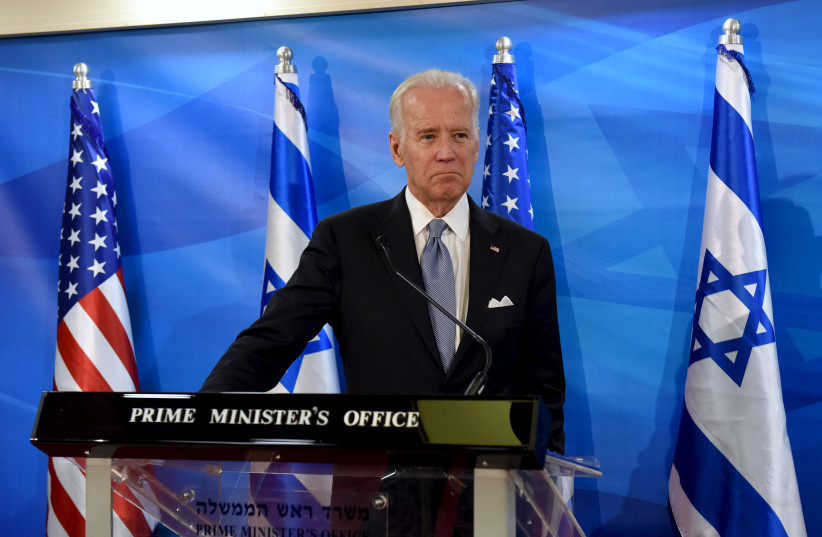There is one issue connecting US President Joe Biden’s visit to Israel with his participation at the I2U2 forum (with Israel, the UAE and India) and his visit to Riyadh, which will include a GCC summit of the Gulf countries. This issue is Iran.
“Except for Saudi Arabia, Iran will be the main topic of this visit for Israel,” said a diplomatic source. “Israel will make it clear that there’s no point in returning to the deal and that time is running out: Now the time is to get back to the Security Council and to snap back sanctions.”
“Israel will make it clear that there’s no point in returning to the deal and that time is running out – now the time is to get back to the Security Council and to snap back sanctions.”
Israeli diplomatic source
The president is likely to hear similar opinions when he visits Riyadh and during his talks with other regional leaders, after EU-mediated indirect US-Iran talks in Doha failed to break a deadlock, hindering efforts to resurrect the nuclear agreement.
The slow decline of the Iran talks

After almost a year of indirect negotiations in Vienna, the broad outline of a revived deal was agreed upon. But then talks broke down in March, largely over Tehran’s demand that Washington removes the Islamic Revolutionary Guard Corps from a US terrorism list. The United States refused, arguing that this was outside the scope of reviving the agreement.
Other remaining obstacles to an agreement, Iranian and Western diplomats said, include providing assurances that Washington will not quit the pact again and that the International Atomic Energy Agency drops its claims about Tehran’s nuclear work.
Washington experts are divided about whether Biden’s visit could signal that the US is moving away from its commitment to reviving the agreement.
Elliott Abrams, senior fellow for Middle Eastern studies at the Council on Foreign Relations in Washington, said: “In this trip, Biden will hear the same questions from Arab states and Israel: Why do you not admit the JCPOA is dead? Is it because you have no Plan B? What will you do to stop Iran’s move toward a nuclear weapon?
“I’m afraid they will get no good answers, because these are questions Biden does not want to face. He once said Iran would not get a nuclear weapon on his watch, but the administration talks only of more diplomacy and more sanctions. Arabs and Israelis will want to know if there is at the end of that road a military option – or capitulation.”
According to Jonathan Schanzer, senior vice president of the Foundation for Defense of Democracies: “This is Schrodinger’s JCPOA. It is neither alive nor dead. The American envoy, Robert Malley, does not appear ready to cede defeat. Israeli officials are expected to tell Biden what they have consistently been saying since he ascended to the presidency: It’s time to shift from a strategy of appeasement to a strategy of pressure. Whether Biden is prepared to hear that message remains to be seen.”
“I don’t believe, necessarily, this is the end of the JCPOA,” said Dennis Ross, distinguished fellow at the Washington Institute for Near East Policy.
“The administration still believes it is better than the alternatives – Iran moving ahead with its nuclear program and becoming even more of a threshold nuclear-weapons state.”
“The administration doubts squeezing Iran more economically will bring it around, leaving the military option as the likely course of action,” he said. “With Russia and Ukraine, competition with China and high oil prices, the administration sees the JCPOA as the least-bad option.”
Ross said he believes Iran’s leaders perceive this “and think that by continuing to advance their nuclear program, they will get the administration to concede more.”
“The Iranians are probably wrong, and when they conclude that, I suspect they will look for a way to come back into the JCPOA,” Ross said. “The irony is that if the Iranians thought they were risking their entire nuclear infrastructure with their current path – because they were driving us to believe force was now the only option – I think they would accept a deal with longer sunset provisions and more sanctions relief.
“In other words, a more-for-more deal is possible, but only if the Iranians believe their current path is pushing us toward a military option.”
Reuters contributed to this report.
